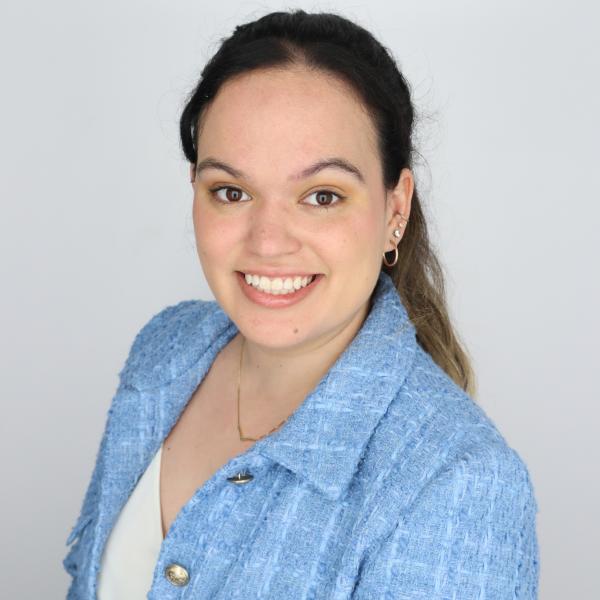Isabel Berry Earns Prestigious Department of Energy Fellowship
Isabel Berry Earns Prestigious Department of Energy Fellowship
Chemistry Ph.D. student Isabel Berry has been named a U.S. Department of Energy Computational Science Graduate Fellow (DOE CSGF).
The program trains emerging leaders in computational science, providing opportunities and funding to students pursuing doctoral degrees in fields that use high-performance computing to solve complex science and engineering problems.
“I am honored to receive this fellowship,” says Berry. “In addition to the support for my Georgia Tech studies, I’m especially excited to participate in the three-month practicum where I’ll collaborate with leading DOE scientists.”
According to the DOE, the practicum takes place at one of 21 DOE laboratories or sites across the country, offering the fellows insights into how their scientific interests can translate to research areas important to the nation.
At Georgia Tech, Berry is a graduate research assistant for the Sherrill Group, spearheading research on using quantum mechanics and high-performance computing to understand how drug molecules bind to proteins.
“Computational chemists are always trying to balance speed and accuracy. My current research focuses on accuracy–modeling proteins with thousands of atoms to understand why some drugs work better than others,” explains Berry. “One of the practicum benefits will be access to the DOE’s supercomputers. I’m looking forward to learning how these incredible computers can help us further implement data-driven approaches to screen potential drug candidates (small molecules) even more rapidly.”
The fellowship is renewable for up to four years. As of September 1, 2024, the DOE CSGF will have onboarded more than 675 students across 34 cohorts representing 84 Ph.D. institutions. There are a record 40 incoming fellows for 2024-2025, with Berry the sole recipient from Georgia Tech.
"Izzy is an amazing student. She came to Georgia Tech with a B.S. in Chemistry and minors in computer science, applied math, and physics—as well as research experience in computational biophysics,” says David Sherrill, Regents’ Professor in the School of Chemistry and Biochemistry and the School of Computational Science and Engineering who oversees Berry’s work. “She is exactly the kind of interdisciplinary student the DOE wants to recognize with their Computational Science Graduate Fellowship. I'm thrilled she's received this prestigious recognition."
